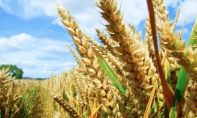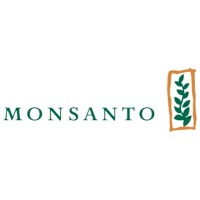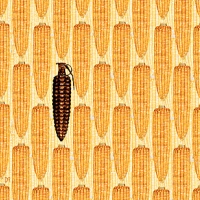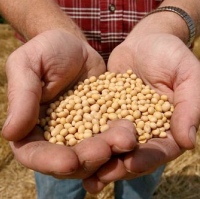- About Us
- Columns
- Letters
- Cartoons
- The Udder Limits
- Archives
- Ezy Reading Archive
- 2024 Cud Archives
- 2023 Cud Archives
- 2022 Cud Archives
- 2021 Cud Archives
- 2020 Cud Archives
- 2015-2019
- 2010-2014
- 2004-2009
 |
August 2012 - Monsanto- Food Not Bombs |
The biotech giant Monsanto has dominated global agriculture since the commercial release of genetically engineered crops such as corn, soy, canola, and BT cotton in the 1990s. The genetic modification and mass production of such crops destroy crucial biodiversity and disrupt millions of years of evolution. Farmers are typically lured into buying Monsanto seeds and chemicals with false promises of higher crop yield. Once a field contains any GMOs, Monsanto essentially owns the land that belonged to a farmer before. But few read the fine print before signing—that is, if they are lucky enough to be literate. Monsanto’s patent on all GMOs has left hundreds of thousands of farming families destitute, and its industrial approach to agriculture has triggered nothing short of an ecological catastrophe.
Farmers are typically lured into buying Monsanto seeds and chemicals with false promises of higher crop yield. Once a field contains any GMOs, Monsanto essentially owns the land that belonged to a farmer before. But few read the fine print before signing—that is, if they are lucky enough to be literate. Monsanto’s patent on all GMOs has left hundreds of thousands of farming families destitute, and its industrial approach to agriculture has triggered nothing short of an ecological catastrophe.
Monsanto was founded in 1901 as a chemical company, and throughout the 1900’s it introduced several new products: saccharine, aspirin, many plastics, PCBs, DDT, Agent Orange, bovine growth hormone, pesticides, and, more recently, the powerful weed killer Roundup (glyphosate). The Roundup herbicide was so powerful that a new kind of soy was introduced—genetically modified to withstand Roundup, and aptly named “Roundup Ready Soy”. If farmers wanted less weeds and higher crop yields, they would have to grow the new GM soy before spraying Roundup on their fields.
Scientists can genetically engineer an organism with a “gene gun.” They extract the necessary gene from a bacterium that is naturally resistant to glyphosate, and coat a microscopic bullet with that gene. The gene gun fires this DNA-coated bullet into the developing crop, creating soy that is resistant to Roundup, corn that is resistant to both herbicide and pesticide, BT cotton that produces its own toxins to ward off pests, GM sugar, wheat, eggplant…the list goes on.
Prof. Vandana Shiva, an Indian environmental activist, has educated farmers about the dangers of GMOs for years. In one speech she describes the ecological damage of Monsanto and the Green Revolution: “A century of breeding for industrial agriculture has been a breeding for uniformity, and uniformity is a guarantee for very high risk and very high vulnerability [to newly mutated plant sicknesses].” In India, thousands of farmers abandoned their old crops hoping to grow high-yielding BT cotton. 
Any genetically modified plant can breed with an organic plant of the same species to produce a fertile hybrid. Oftentimes, an organic field is “contaminated” with GMOs because of cross-pollination by wind or by animals coming from a GM field. Organic farmers caught in such situations are compromised by Monsanto’s strict patent policies, and, unfortunately, forced to plant only Monsanto’s seeds. Thousands of farmers and activists have protested this policy as a violation of farmers’ rights—those who dare to point out the corporation’s unjust privatization of the commons rarely have the law on their side.
Monsanto forbids any grower of its GM crops to save seeds for the next planting, forcing farmers to buy new seeds, herbicide, and pesticide from the company every year. Such a phenomenon has not occurred even once in millennia of farming, yet in a couple more decades Monsanto aims to end all traditions of seed saving.
The genetic diversity of our food continues to plummet as a result of a few biotech giants’ thirst for power. Hundreds of thousands of Indian farmers have committed suicide because of their debt, many by drinking the very poisons they were forced to buy. Farming families are left with practically nothing after a drought, and thus more urban slums are born around the world.
Sources:
“The World According to Monsanto” documentary film by Marie-Monique Robin
http://www.organicconsumers.org/
“Seeds of Change” and Navdanya talks by Vandana Shiva
Chomsky.info
Air Lakra writes for the Exonian. In her spare time she likes to climb trees or watch movies with her dorm mates.
